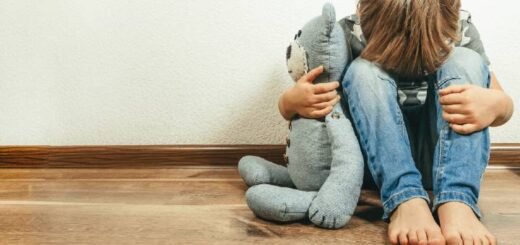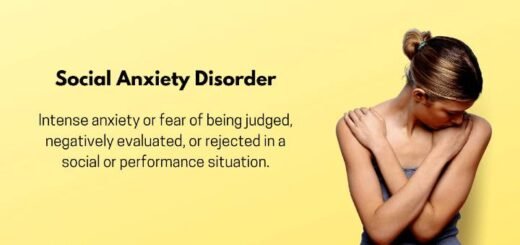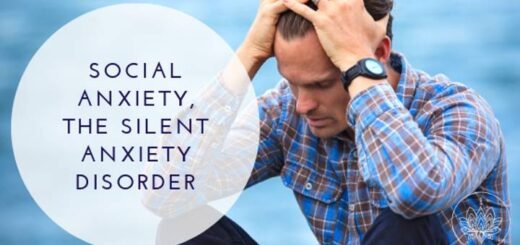Social Media’s Role in Youth Social Phobia in New Zealand
In New Zealand’s digital landscape, the rise of social media has transformed the way young people interact, yet it has also contributed to growing concerns about social phobia. Understanding social_1 is crucial for grasping the intricate relationship between online interactions and mental health. Many young Kiwis find themselves navigating a world where the pressure to present a curated image can exacerbate feelings of anxiety and isolation, leading to social phobia.
As we delve into the connection between social media use and social phobia, it’s essential to consider the unique experiences of New Zealand’s youth. Understanding social_1 can offer insights into how these digital platforms influence self-esteem and social interactions. For those seeking support, resources are available through local initiatives such as support groups for social phobia in New Zealand, which provide valuable assistance for individuals grappling with these challenges.
The Rise of Social Media in New Zealand’s Youth Culture
In recent years, social media platforms like Facebook, Instagram, and TikTok have become integral to the daily lives of New Zealand’s youth. With the advent of these digital tools, young people can connect, share, and express themselves like never before. However, this increased connectivity has also brought forth a paradox: while social media can foster relationships, it may simultaneously exacerbate feelings of isolation and anxiety, particularly for those with social phobia.
Research indicates that frequent engagement on social media can lead to comparisons with others, fostering feelings of inadequacy and fear of judgment. This is particularly relevant in New Zealand, where societal pressures to conform can be pronounced among adolescents and young adults. The constant exposure to curated lives on social media can amplify these feelings, making it essential to understand the implications of this digital landscape on mental health.
To navigate this complex terrain, it’s important for young Kiwis to be aware of their social media habits. Setting limits on usage and engaging in digital detoxes can help create a healthier relationship with these platforms. For more insights into managing social phobia in this context, visit Social Phobia.
The Psychological Impacts of Social Media on Social Phobia
Social media can act as a double-edged sword for individuals suffering from social phobia. On one hand, it offers a platform for connection and self-expression; on the other, it can exacerbate anxiety-related issues. The fear of negative evaluation, a hallmark of social phobia, can be intensified by the perceived need to maintain a perfect online persona. This pressure can lead to avoidance behavior, where individuals withdraw from both online and offline social situations.
In New Zealand, this phenomenon is particularly concerning given the increasing rates of anxiety and depression among young people. Studies show that individuals with social phobia often feel more comfortable interacting online than in person, which may reinforce their avoidance behavior. This reliance on digital communication can hinder the development of face-to-face social skills, creating a cycle that further entrenches their anxiety.
Understanding the psychological impacts of social media is crucial for creating effective interventions. Young people should be encouraged to seek help if they notice their social media use is negatively affecting their mental health. Resources like Social Phobia provide valuable information and support for those struggling with these issues.
Social Media and the Fear of Missing Out (FOMO)
Fear of Missing Out (FOMO) is a prevalent issue among New Zealand’s youth, often exacerbated by social media. FOMO can lead to compulsive checking of social media platforms, further heightening anxiety and feelings of loneliness. For individuals with social phobia, the fear of missing out on social events can be particularly distressing, leading them to either overcommit or withdraw entirely.
This cycle can be damaging; the constant barrage of images and updates from friends can create a distorted reality, where social interactions seem more vibrant and fulfilling than they actually are. As a result, individuals may feel pressured to engage in social activities that heighten their anxiety, leading to a negative feedback loop.
To combat FOMO, young New Zealanders should focus on cultivating meaningful offline relationships and practicing mindfulness. Engaging in activities that promote well-being, such as sports or arts, can provide a healthier outlet for social interaction. For more guidance on managing social phobia and FOMO, visit Social Phobia.
The Role of Online Support Communities
Online support communities can play a pivotal role in helping young people with social phobia. These platforms provide a space where individuals can share their experiences, seek advice, and connect with others who understand their struggles. For many, the anonymity of the internet allows for more open discussions about mental health than they might have in person.
In New Zealand, platforms such as Facebook groups and online forums specifically targeting anxiety and mental health can provide invaluable support. These communities often share tips for coping with social phobia, resources for seeking help, and personal success stories that can inspire others to seek treatment.
However, it’s crucial to approach these online spaces with caution. Not all information shared is accurate or helpful, and it’s important for individuals to verify sources and seek professional help when necessary. For further resources on social phobia, check out Social Phobia.
Strategies for Healthy Social Media Use
To mitigate the adverse effects of social media on social phobia, young New Zealanders can adopt several strategies to promote healthier usage. One effective approach is to curate their social media feeds, unfollowing accounts that trigger negative feelings and following those that offer support and positivity.
Additionally, setting specific time limits for social media use can help prevent compulsive checking and reduce anxiety levels. Engaging in regular breaks from these platforms can also foster a more balanced life, allowing for greater focus on offline relationships and activities.
Moreover, practicing self-care and prioritizing mental health is essential. Young people should be encouraged to engage in hobbies, exercise, and spend time in nature, all of which have been shown to alleviate symptoms of social anxiety. For more information on managing social phobia effectively, visit Social Phobia.
Real-Life Examples from New Zealand’s Digital Generation
New Zealand’s digital generation is filled with stories that reflect the complexities of social media and social phobia. For instance, many young people have shared how they initially found solace in online communities during periods of intense anxiety, only to realize that excessive online interaction led to increased feelings of isolation.
One notable example is a young woman from Wellington who used Instagram to express her struggles with social phobia. Over time, she cultivated a supportive online following, which helped her gain confidence. However, she also recognized the importance of balancing her online presence with real-world interactions, ultimately leading her to join local clubs and engage in community activities.
These stories underscore the importance of fostering a healthy balance between online and offline life. By sharing their experiences, young New Zealanders can inspire others to take steps toward managing their social phobia and creating a more fulfilling life. For further insights and support, explore Social Phobia.
The Future of Social Media and Mental Health Awareness
As social media continues to evolve, so too must our understanding of its impact on mental health. For New Zealand’s youth, this means advocating for greater mental health awareness and resources to address the challenges posed by social media. Educational institutions, parents, and communities can play a vital role in promoting healthy digital habits and providing support for those struggling with social phobia.
Future initiatives could include workshops on digital literacy, mental health resources in schools, and campaigns aimed at reducing stigma surrounding mental health issues. By prioritizing mental well-being, New Zealand can cultivate a generation of young people who are not only digitally savvy but also emotionally resilient.
For those seeking additional resources and support related to social phobia, visit Social Phobia to access valuable information and connect with others on similar journeys.
FAQs
What is social phobia and how does it relate to social media use?
Social phobia, or social anxiety disorder, is characterized by an intense fear of social situations and being judged by others. With the rise of social media, many individuals, especially in New Zealand’s digital generation, may find that their online interactions either exacerbate or alleviate their social fears. Understanding social_1 can help shed light on these dynamics.
How does social media impact the mental health of young New Zealanders?
Social media can have both positive and negative effects on mental health. While it provides a platform for connection and support, it can also lead to feelings of isolation, anxiety, and comparison. Exploring understanding social_1 can help identify these contrasting influences on young people’s mental well-being.
Are there specific social media platforms that contribute more to social phobia?
Different platforms can evoke varying levels of anxiety. Visual platforms like Instagram might increase comparison and insecurity, while text-based platforms may offer a sense of anonymity. Understanding social_1 can provide insights into which platforms might be more triggering for individuals with social phobia.
Can social media be used as a tool to overcome social phobia?
Yes, social media can serve as a supportive tool for those with social phobia. It allows individuals to connect with others who have similar experiences and access resources. However, moderation is key, and understanding social_1 can guide users in finding a balance that promotes healthy engagement.
What role does online identity play in social phobia?
Online identity can significantly influence how individuals perceive themselves and interact with others. For some, creating a curated online persona may provide confidence, while for others, it can lead to anxiety about authenticity. Understanding social_1 offers insights into how these identities affect social phobia.
How can parents help their children navigate social media and social phobia?
Parents can play a crucial role by fostering open conversations about social media use and its effects on mental health. Encouraging critical thinking about online interactions and promoting offline activities can help mitigate social phobia. Resources like understanding social_1 can equip parents with knowledge on this issue.
What are some signs that social media use is negatively affecting someone’s mental health?
Signs may include increased feelings of anxiety, withdrawal from face-to-face interactions, obsessive checking of notifications, and negative self-comparison. If someone exhibits these behaviors, it may be beneficial to explore understanding social_1 to address the connection between their social media use and social phobia.
References
- New Zealand Social Phobia Society – A dedicated resource for understanding social phobia in New Zealand, providing information and support for individuals affected by this condition.
- The Relationship Between Social Media Use and Social Anxiety in Adolescents – A research article exploring how social media impacts social anxiety levels among teenagers, with insights applicable to New Zealand’s youth.
- Social Media and Social Anxiety Among Teens – An article discussing the correlation between social media usage and increased social anxiety, with a focus on adolescent experiences.
- Social Media Use and Anxiety: A Systematic Review – A comprehensive review of studies examining the links between social media usage and anxiety disorders, offering valuable insights for understanding the digital generation.
- Social Media, Social Anxiety, and Resilience Among Adolescents – A study highlighting the dual role of social media as both a risk factor and a potential source of resilience for adolescents dealing with social anxiety.




